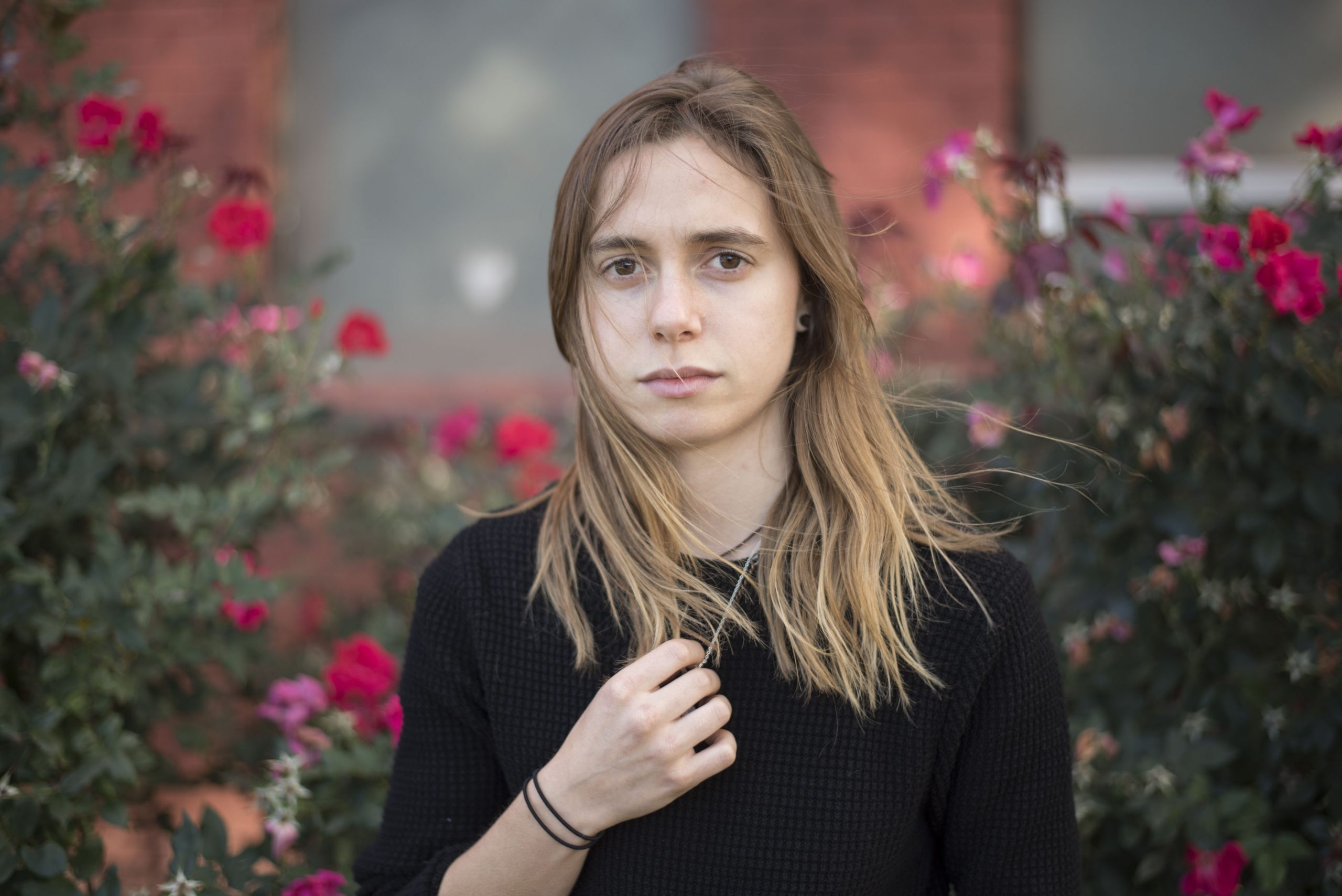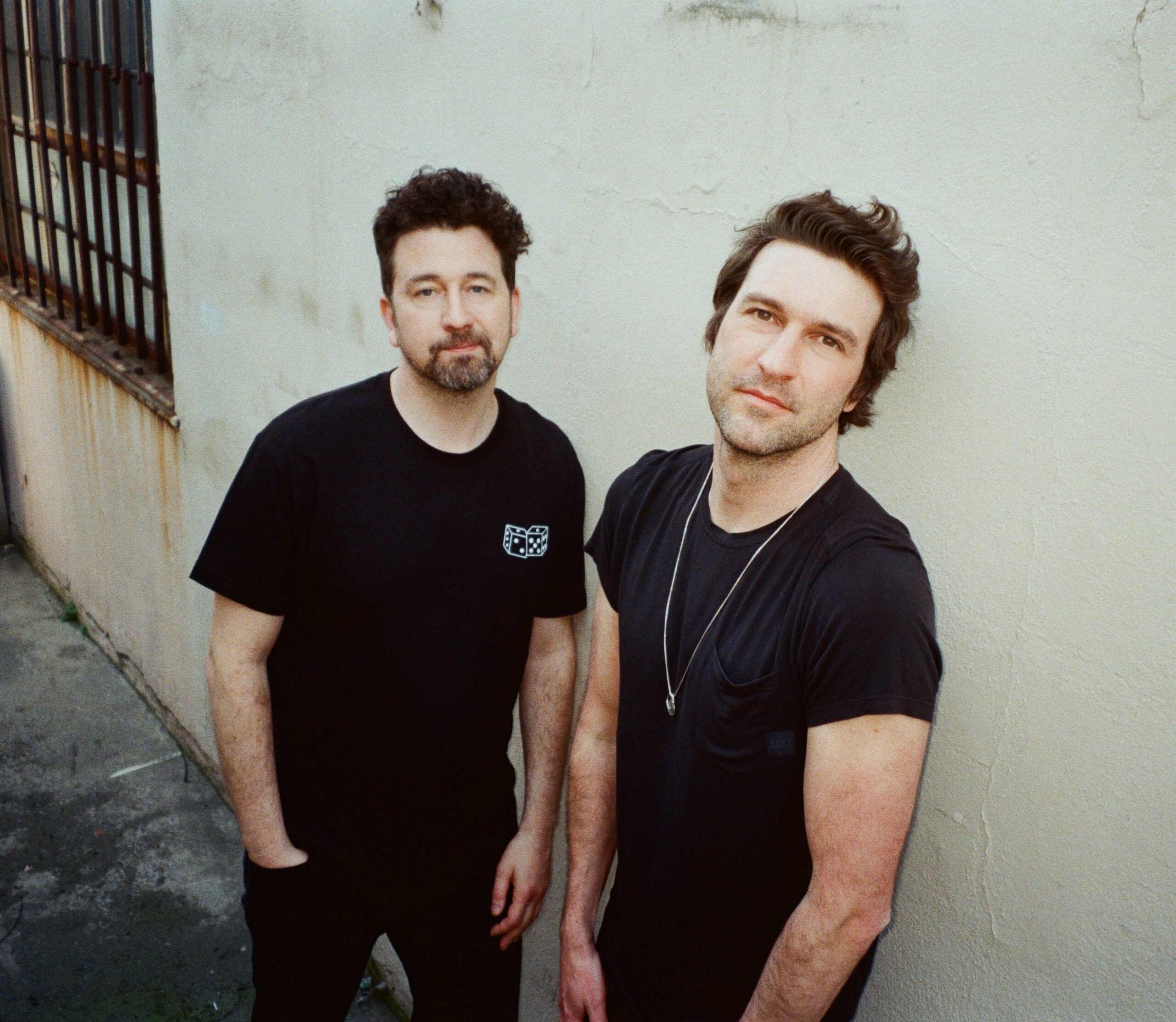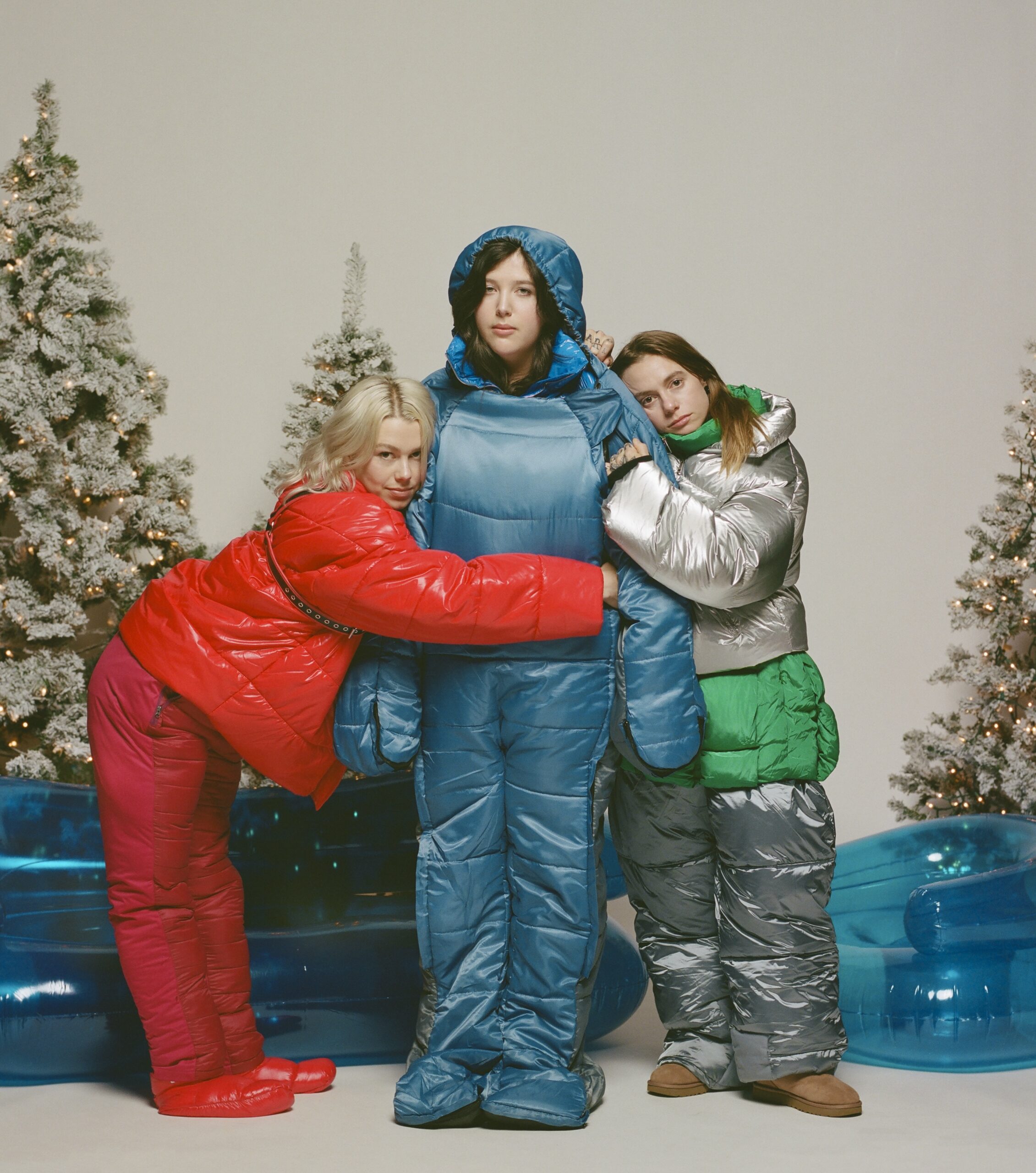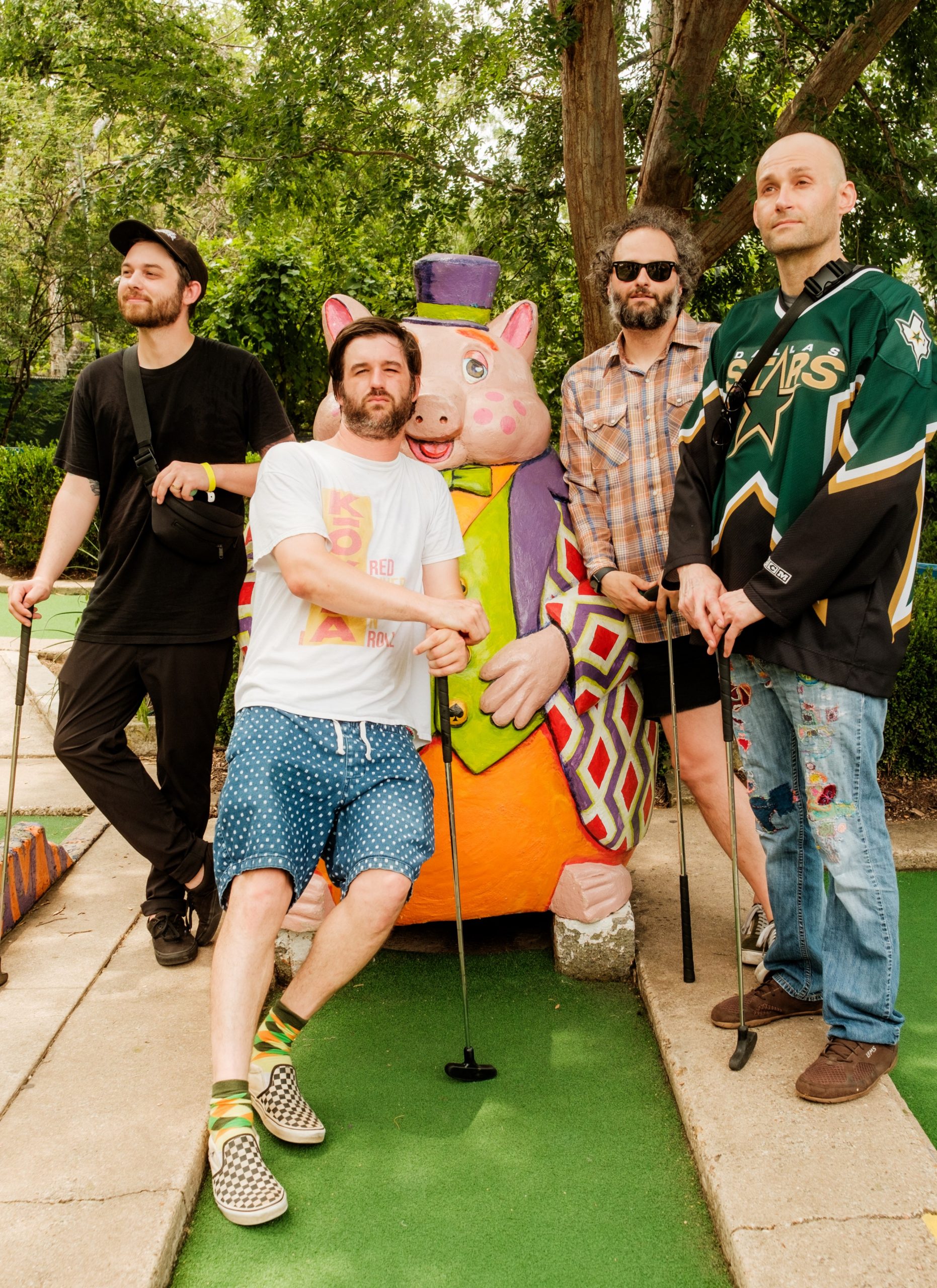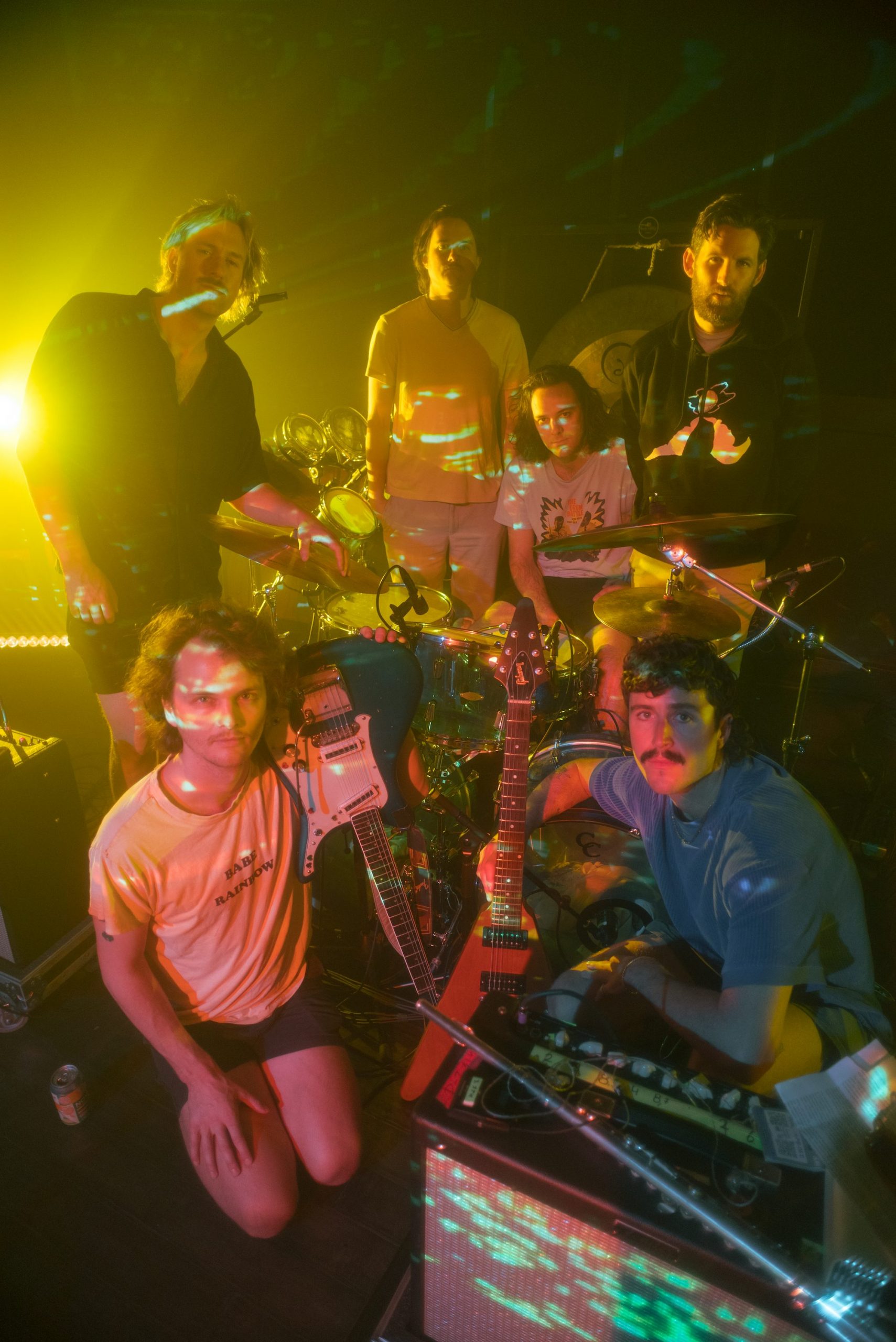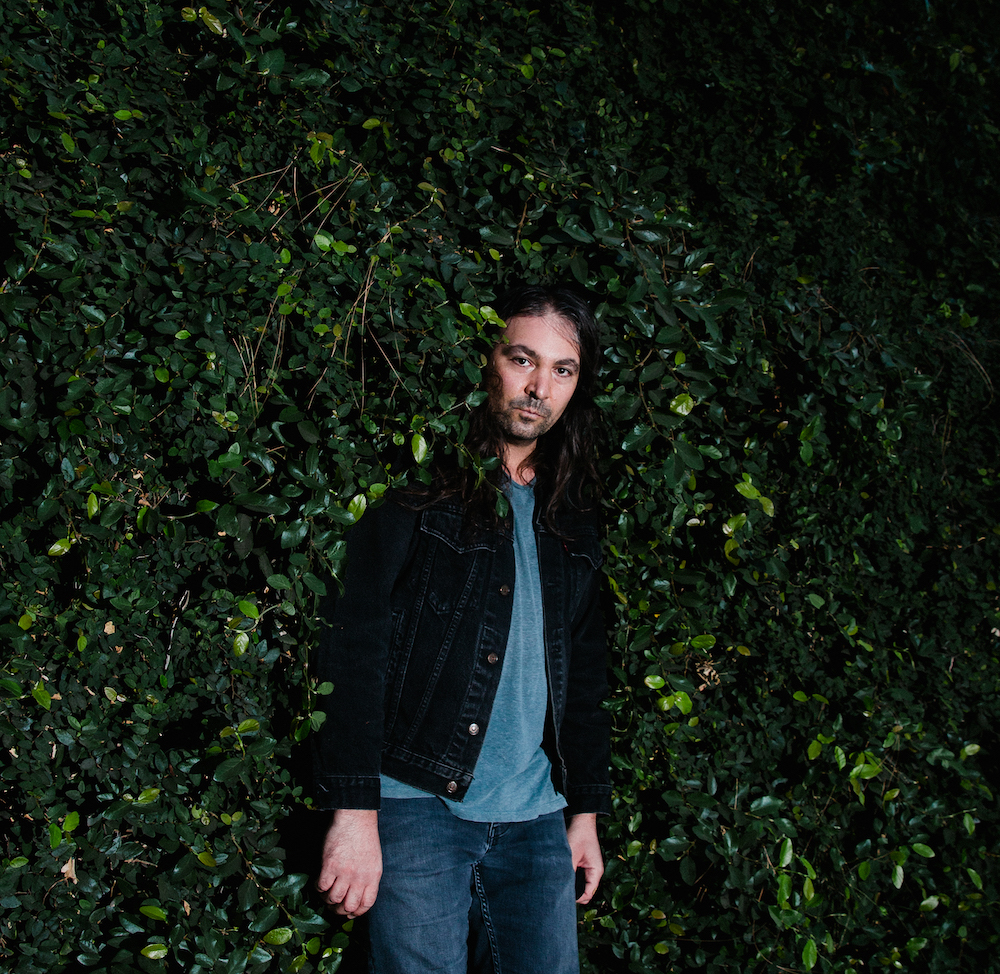One sunny afternoon in Charlottesville, the singer-songwriter Julien Baker is excitedly chatting about her guitar pedals when a local homeless man walks up and asks her for some money. Baker hands him a dollar and then apologizes for not having more cash than that. Then she asks him if he's hungry, and she gets up from the outdoor coffee-shop table where we've been talking and walks with him to a pizzeria a block away. She buys him two slices -- one meatball, one cheese -- and a bottle of soda. While we're waiting for the pizza to heat up, she compliments me on my sneakers. I think she says something nice to the guy behind the counter, too, but I'm not sure about that.
As we're leaving the pizza place, Baker seems to remember that she's in the middle of an interview, and that something like buying a homeless guy dinner might have looked like a showoffy act of goodness. "I hope that when I do things like that, I don't come across as, like, performative," she says. "You know the 'white savior' trope? I hate that so much, but that comes into direct conflict with a desire to meet a person’s immediate needs. I didn’t have any cash, and I had to offer. Because if that person’s hungry, they deserve to be fed. Period. But I don’t like doing it in public because this is my first time meeting you, and I don’t want you to feel like..."
Baker stops mid-sentence, but it's not because she's trailed off. It's because a fan has just approached her. He's really excited. She poses for a photo with him, and then with a few other fans who notice and approach. And then she continues: "I don’t know how religious you are, but I always think of that parable about the guy that makes this big show of donating the money, and then the lady comes and sticks her dinky pennies in there and doesn’t ask for any help. Jesus is like, 'That guy’s lame. He just wants recognition.' So I’m always super-aware of that."
So, to recap, in the short time I spend with her, Julien Baker buys dinner for a stranger. She poses for photos with more strangers. She says nice things about my shoes, which, to be entirely honest, are not anything special. And then she insists, eloquently and sincerely and with Biblical citation, that she does not want to perform the act of being a nice person. Baker's music is intense and visceral and bleak and sad. Her songs are about getting lost inside your own head, about howling into the void. But in the brief window of time I spend with her, Baker does more to make other people happy than most of us probably do in a month. And then she worries about how it looks.
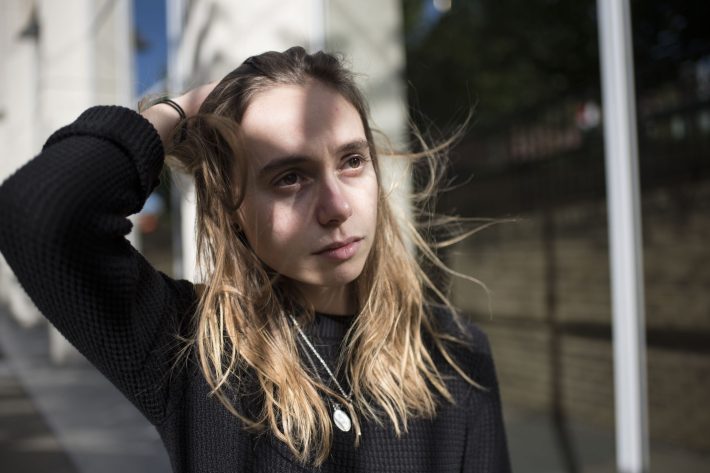
Baker is in Charlottesville because she lives on the road and also because she's about to release her heart-shattering sophomore album, Turn Out The Lights. The LP follows Sprained Ankle, Baker's 2015 debut, a striking work full of sparse arrangements and feverishly intense vocals and stark, unflinching depictions of depression and substance abuse and mental illness. Sprained Ankle turned Baker into something like a cult star -- or, in any case, into someone who could fill up a Charlottesville theater on a Sunday night. It's a great album. Turn Out The Lights is better. For Turn Out The Lights, Baker made the leap from the small indie 6131 to the big and storied indie Matador. It's a bigger-sounding album, too, from the cinematic strings that break in every so often to the grand, crashing conclusions that Baker now sometimes uses to climax songs. But it's also a spare and quiet and sad album, one that is going to haunt journal entires and high-school yearbook quotes for a long time to come.
As with Sprained Ankle, Baker produced the new album herself. And she played nearly all the instruments. (This time around, there are a few guests. Matt Gilliam, her old Forrister bandmate, sings harmonies on one song, while Sorority Noise's Cam Boucher plays woodwinds on two tracks and Camille Faulkner, the violinist who's currently on tour with her, adds occasional strings.) And she keeps the same feverish lyrical intensity that she's had since we first met her.
"Wish I could write songs about anything other than death." That was Baker on "Sprained Ankle," the title track of her debut. Baker was 19 when she made Sprained Ankle, and it's a raw and unflinching document about being young and deeply fucked up. On that album, Baker sings about watching your veins turn blue, or believing with all of your heart that you are unworthy of love. It's a proudly, cathartically heavy album.
I always think of that parable about the guy that makes this big show of donating the money, and then the lady comes and sticks her dinky pennies in there and doesn’t ask for any help. Jesus is like, 'That guy’s lame. He just wants recognition.'
Talking to Baker outside on that sunny Charlottesville afternoon, I ask whether she had to take herself to a dark place to write those songs, and she says that she didn't: "I was just in that place."
It was only after Baker released that album, after she sang those songs on the road every night, that she started to think about what they mean, how they work. "Those were thoughts that, if left inside of my psyche to fester, would crush you and make nothing enjoyable," she says. "When I talk about what I’m feeling, I can get outside of it and analyze it. I think that process, especially on Sprained Ankle, happened after it was recorded. All of those songs are just documentations of how I felt at that time. I was writing them because I needed to."
[videoembed size="full_width" alignment="center"]https://youtube.com/watch?v=MdBu21i9aEE[/videoembed]
A song like the Sprained Ankle track "Everybody Does," then, took on a whole new meeting when she sang it live every night. On "Everybody Does," Baker sings, "I know myself better than anyone else / And you're gonna run / You're gonna run when you find out who I am." Then she repeats, over and over, like a mantra, "You're gonna run, it's all right, everybody does." For Baker, that song changed when she got to see audiences reacting to it.
"Now, I get just ecstatic when I sing 'Everybody Does,'" she says. "Sometimes, people sing along. That’s my favorite thing in the world, when people sing along and I can back up from the mic and it’s no longer me singing. It’s just the crowd. It makes me so happy because the place I was in when I wrote that song and the assertions I was making about my self-worth, what I believed about others and their perceptions of me, is constantly inverted. So to me, that song is about that lesson, and learning it’s a fallacy to believe everyone will run when you tell them who you really are."
Other musicians started taking notice. Brand New, Dashboard Confessional, and Sorority Noise's Cam Boucher covered Baker's songs. Paramore and Death Cab For Cutie asked her to open shows. "To watch her silence the entire audience as an opening act was astonishing," says Scott Hutchinson, frontman of Scottish indie rockers Frightened Rabbit, who toured with Baker last year. "Having been an opening act a number of times, I know how difficult that is to do. On top of that, she is also one of the smartest and kindest people I've ever met. I think the days of her opening for us are over, as she's way too popular for that now!"
When Baker headlined New York's Bowery Ballroom last year, Sharon Van Etten joined her onstage to sing "Good News." "[Baker's music] has brought me to tears," says Van Etten. "We became friends from me being a fan. I love how minimal her arrangements are, and I had offered to sing with her if she ever wanted. I am so happy I didn't offend her by the offer. Her performance is so strong on its own."
[videoembed size="full_width" alignment="center"]https://youtube.com/watch?v=-LkMrraYCWg[/videoembed]
Last year, the Los Angeles post-hardcore band Touché Amoré released Stage Four, an album about frontman Jeremy Bolm watching his mother die of cancer. There's only one guest on the entire album, and it's Baker. She sings on "Skyscraper," the last song on the album. It's about Bolm taking his mother, a few months before she died, on a trip to New York, a city she'd always wanted to see. On that song, Bolm's voice starts out calm, numb, and becomes a stragulated scream. Baker remains steady, almost like she's keeping him grounded, even though she was on the other side of the country when she recorded her part. "You live there," they sing together, "under the lights."
"I’m a Leonard Cohen fanatic," Bolm explains. "One of the things I love most about Cohen is that he had a very limited singing range and knew how to make the most of it. One of his brilliant tactics was to bring in a gorgeous female voice to push the melody/harmony to become so much more than it would be if it were just him alone. So with 'Skyscraper,' I took a page from that, and I couldn’t imagine a better voice to be a part of it."
"Jeremy sent me a Facebook message," Baker remembers. "I remember I was sitting in my car and I opened a text message in the parking lot like, 'Oh, I’ll just check this before I go in to do whatever I have to do.' It was Jeremy Bolm, and I just started crying. I love this band. When I was in college, I used to spin Parting The Sea and just lay there in my dorm and be in my feelings."
Baker is still getting used to the idea that these artists, the ones she listened to when she was younger, can be her peers. "It does feel affirming for them to be my friends," she says. "But I'm also just so happy that they’re there because they afford me a lot of guidance. When I don’t know what to do, there’s somebody that can relate and know the workings of that world."
But even after all her accomplishments, when Baker started recording Turn Out The Lights, she had to consider how she was writing -- whether it made sense to make another album about her own feelings. "I had plans to go into the studio in January, and the whole record was written," she tells me. "And then everything that happened happened. The election happened. It felt like the world got turned upside down. And I thought, 'This record’s just about me.' But it's not, and I've had to teach myself that. I can choose to shape the narrative. I could sit here and tell you all of the stories about all of the songs, and those are real stories that happened to me. But I could also just offer this thing I made into the universe and hope that people can inhabit the songs in whatever way that they need to. That they can feel less alone."
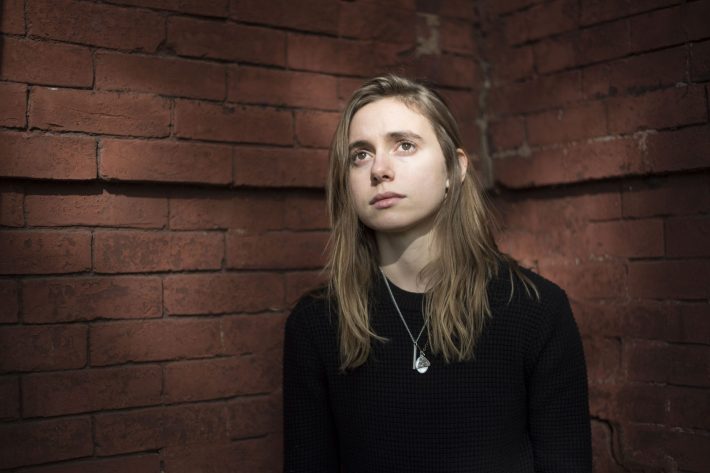
When Baker's father was 19, he got into a motorcycle crash, and he lost his leg. "He didn’t know what he wanted to do with his life, and then he got a prosthetic limb," Baker tells me. "And he went back to school and learned how to make prosthetic limbs. And that’s what he does now... It was weird growing up, because it took me a while to realize that not everyone’s dad had one leg."
While Baker's father was building limbs for babies, her mother was working as a physical therapist, rehabilitating older people and people who'd been through traumatic injuries. "[They] shaped my concept of what you do with your talents," says Baker. "My dad experienced this horrible trauma and then repurposed it into a profession and a gainful employment where every day he gets to help someone walk again."
Baker's father kept riding motorcycles; Baker says that another crash gave him a facial scar that looks like a permanent black eye. He also used to take her to hardcore shows in skate parks. "When somebody would accidentally hit me in, like, a Poison The Well mosh, I’d feel things get calmer all of a sudden," says says. "My dad is two inches taller than me; he’s like 5'3". And he would have this huge guy in a Harm’s Way hoodie up against the wall."
I could sit here and tell you all of the stories about all of the songs, and those are real stories that happened to me. But I could also just offer this thing I made into the universe and hope that people can inhabit the songs in whatever way that they need to. That they can feel less alone.
But before Baker and her father were seeing hardcore bands in skate parks, Baker was playing music in church. As a kid, she played in praise band -- the rock bands that would play in large Christian churches. "It’s this crazy phenomenon where that’s one of the only musical outlets that is accessible, as a kid, before you can go to house shows with ease," Baker explains. "I could participate in a band setting by being in praise band faster than at DIY shows because I couldn’t drive. So while those two things are opposite, they both contributed to my musical sensibility."
As a sophomore in high school, Baker formed a band called the Star Killers, which evolved into the post-hardcore group Forrister. Baker booked the band's first tour when she was 16, and her dad came in the van with them. "There was something where [minors] couldn’t go across state lines without a chaperone," Baker remembers. "If you got pulled, over you’d be screwed. It was Matt [Gilliam]’s car. So my dad came with us, which was cool! He was just sleeping on floors, in piles of dirty clothes."
You can hear both sides of Baker's musical development, the churches and the DIY shows, in her music, especially in Turn Out The Lights. As with Sprained Ankle, there's a devotional aspect to the music, and Baker sounds transported when she's singing it. Maybe that comes from praise music. But while the album remains a personal and intimate affair, the dynamics are bigger. There are moments that recall the climaxes of the best hardcore songs, where everything comes crashing down. It's there on the title track, when everything drops out and Baker's voice suddenly comes in, louder than it's been, wailing and raging.
"If you think about Mean Everything To Nothing by Manchester Orchestra or The Devil And God Are Raging Inside Me by Brand New or Plunder, Beg And Curse by Color Revolt, those are some of the craziest," Baker enthuses. "They go from so faint that you can barely hear them to climaxes with, it seems like, 10 vocal tracks and guitars that are through the roof. And that theatrical, dramatic payoff is what I latched onto."
[videoembed size="full_width" alignment="center"]https://youtube.com/watch?v=xV1dMqeb4_U[/videoembed]
Like Sprained Ankle, I hear Turn Out The Lights as a desperately sad album, an album to put on when you need to crawl under blankets and curl into a fetal position. But Baker doesn't hear it that way. "When I had to talk about Sprained Ankle, to do interviews about it and sing the songs every night, I had to think, 'What was the motivation behind this feeling? How am I trying to mitigate this feeling? What am I doing about it?' I had to deconstruct those emotions instead of just say that they were. I can’t just say that this is how I’m feeling and leave it as that stagnant declaration. So with this record, I was like, 'Well I can’t just write a song that the premise is I am sad. I have to write a song that's like, I am sad and also this.' I had to yes-and, improv-style."
It's not a happy album, certainly. But to Baker, it's an album that at least allows for the possibility of happiness. "Think about a Raymond Carver short story or something," she explains. "We like those stories because there is no happy ending. And sometimes, in life, there’s not one. And I hope that maybe including the provision of a happy ending -- not a happy ending, but hope, hope is a good word -- including the provision of hope... You know people that say, “Let go and let God,” unironically? I believe in God, but you've got to do stuff. You can’t just be entirely passive. Passivity is a tacit endorsement of evil we are too afraid to oppose actively. You can’t just always let go."
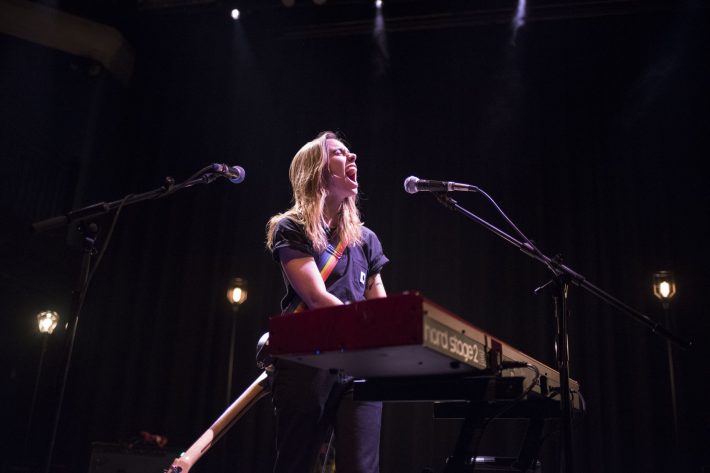
A couple of hours later, Baker is onstage in the downtown venue that was once Charlottesville's discount movie palace. There's a big crowd there, and people have driven in from around the Central Virginia region. I talk to kids from Lynchburg, from Richmond, from Fredricksberg. They're all excited, and they all refer to Baker by her first name, like she's a friend. But even with a good portion of the crowd there from out-of-town, I get the feeling that this show is for Charlottesville. Baker booked it before any of this happened, but for the people here after the white-supremacist terrorist attack a month before, it's a cathartic experience.
Before the show, I walk with Baker through downtown Charlottesville and point out some of the places where bad things had happened -- the Robert E. Lee statue that's since been covered up with a black plastic tarp, the parking garage where DeAndre Harris was savagely beaten. Baker tells me about where she'd been that day, getting excited to open for Paramore in Montana and walking into a dressing room that was like a tomb: "My tour manager was like, 'I don’t know how to tell you this, but like there's a neo-Nazi gathering and they killed a protester.' And I was just like, 'That’s not real.' I couldn’t believe it."
The bill for the Charlottesville show is three women -- Baker, Half Waif, Petal -- all of whom come from the DIY scene and all of whom speak glowingly about each other from the stage. Petal's Kiley Lotz mentions the strength that she's seen in this town. Baker, thoughtful and gregarious offstage, doesn't talk much when she's performing, and she never mentions the attacks. She doesn't have to.
Onstage, Baker is an unassuming figure, wearing the same black jeans and Carhartt T-shirt that she had on when we were drinking coffee. Her only accompaniment is Faulkner, the violinist, who plays on about half of her songs. Baker plays guitar and keyboard, and she uses pedals to make loops of the quiet, ringing figures that she plays, turning herself into a band on her own. Her voice is crystalline and expressive and sometimes enormous, like she's channeling forces outside herself. While some of her shows turn into sing-alongs, this one is quiet, with the audience rapt, in something like awe. These songs, about feeling small and insignificant, have a way of making big rooms full of people feel larger and stronger and more together. And that's what they do in Charlottesville. We walk out feeling like Baker just bought us dinner.
